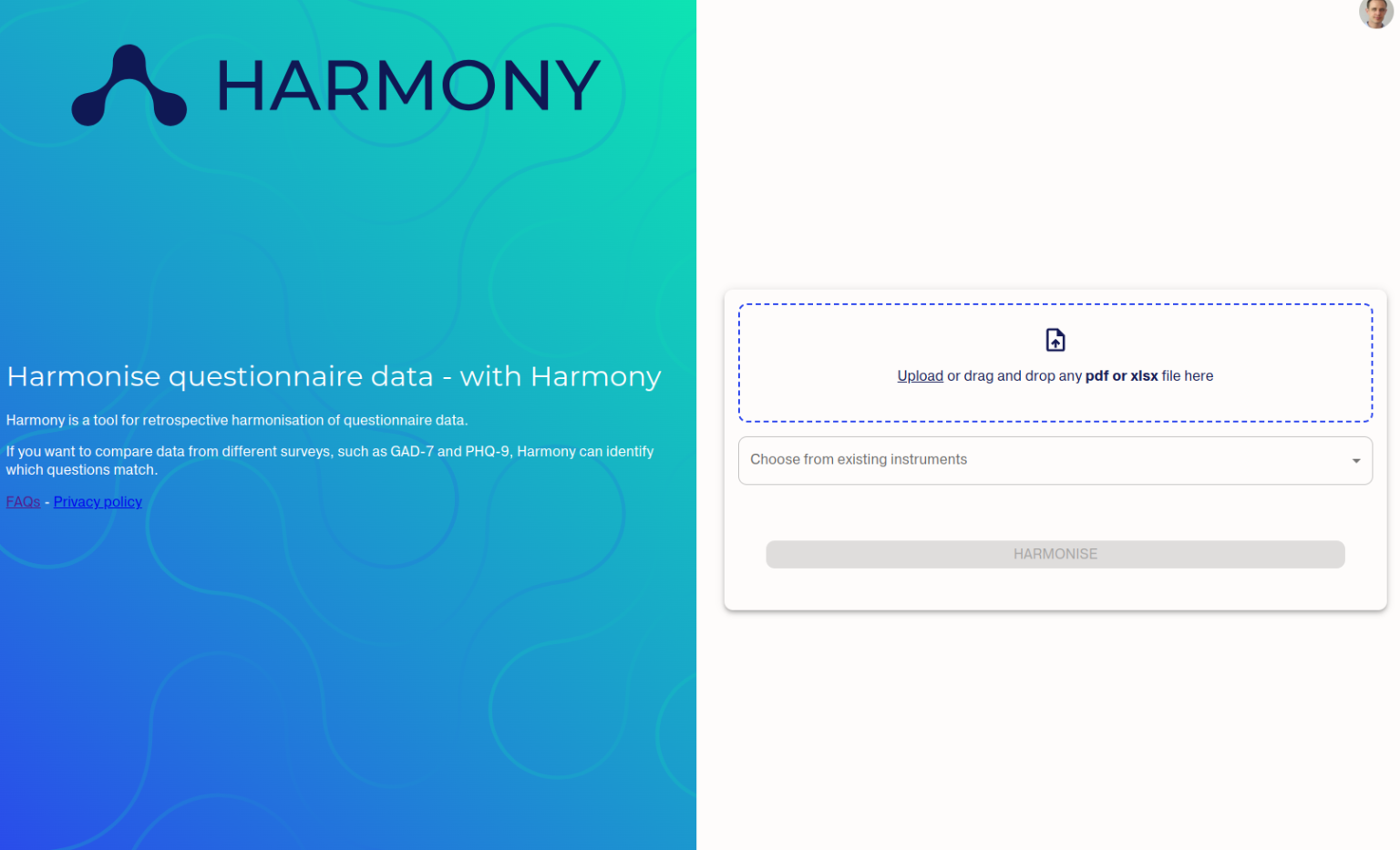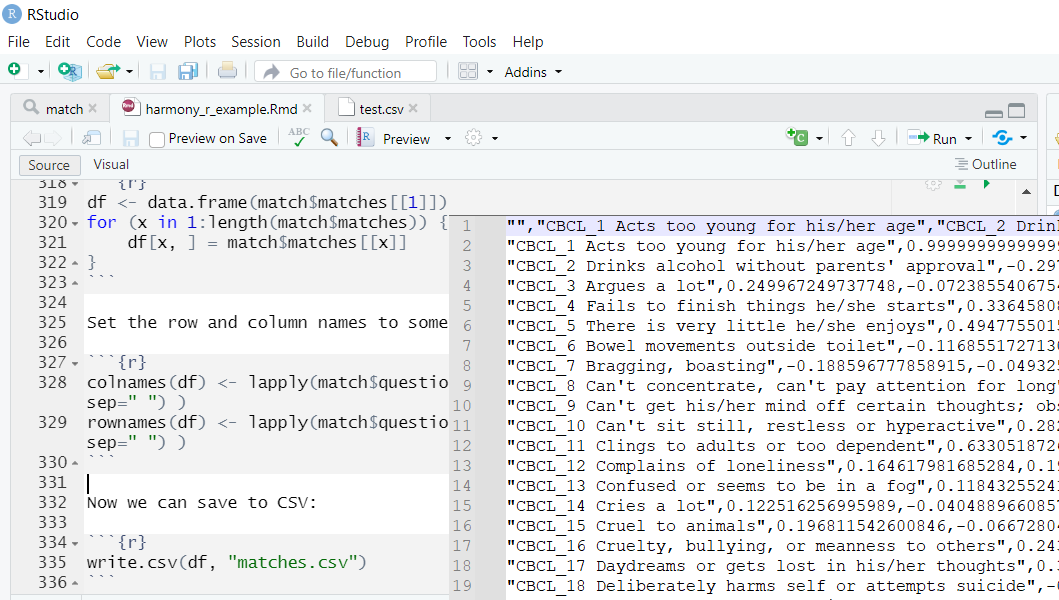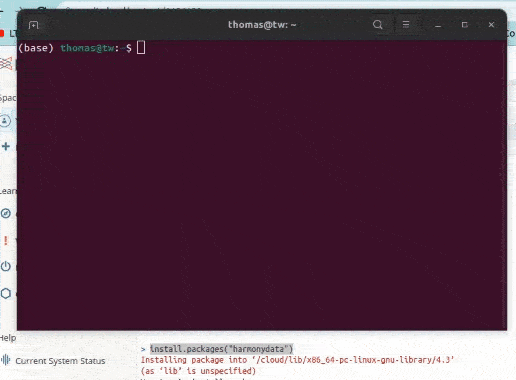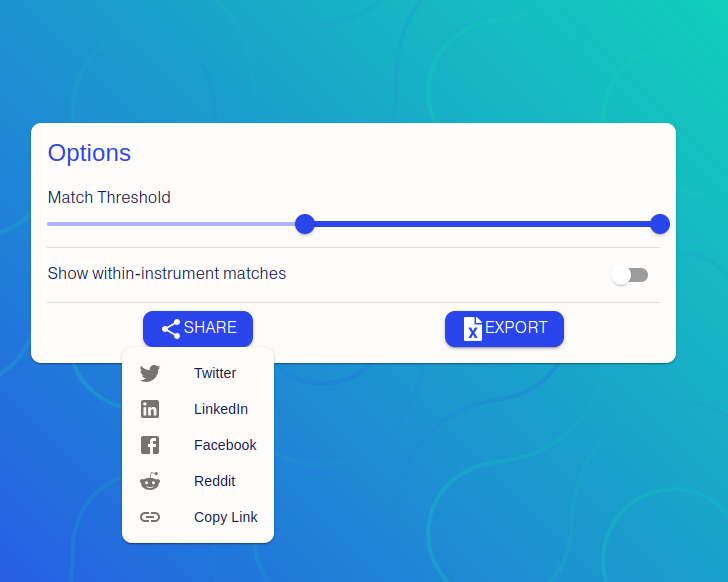Harmony News

Longevity is a tricky topic in software development. We’ve been thinking about how we can make sure that Harmony continues to operate for a long time in the future, since Harmony is intended as a public good for researchers to use with no strings attached (an open source tool for social science). Sustainability assessment In April 2023, we completed the software sustainability assessment with the Software Sustainability Institute, which gave us 29 recommended improvements to make Harmony more sustainable.

Harmony update: new features and bug fixes We are pleased to announce the release of a new update to Harmony, our open source online platform for harmonising question items. This update includes a number of new features and bug fixes, designed to improve the user experience and make Harmony even more useful for researchers. New features: Complete reworking of the search functionality: The search functionality in Harmony has been completely rewritten to support Lucene-like queries.

This notebook shows how you can use Harmony to find the similarity matrix between two questionnaires: the Child Behavior Checklist (CBCL) and GOASSESS. The Harmony project is an open source data harmonisation project that uses Natural Language Processing to help researchers make better use of existing data from different studies by supporting them with the harmonisation of various measures and items used in different studies. Harmony was developed as a collaboration between Ulster University, University College London, the Universidade Federal de Santa Maria, and Fast Data Science.

We are excited to announce that Harmony, an open source Natural Language Processing tool for data harmonisation, is now available on the Comprehensive R Archive Network CRAN! Previously, Harmony R could be installed using devtools. Harmony can be used to compare questionnaire items across studies, find the best match for a set of items, and identify different versions of the same questionnaire. Harmony is a collaboration project between Ulster University, University College London, the Universidade Federal de Santa Maria, and Fast Data Science.

We have developed the R package for Harmony and open sourced it. To get started, you need R installed on your system. Click here to try an example in Google Colab. Here’s a Jupyter Notebook with an example using Harmony in R Installing R library We are currently submitting the R library to CRAN. In the meantime, you can install the development version of harmonydata from GitHub (documentation in the README file):

Now you can share your harmonisations with your colleagues with a simple share link! We’ve added Firebase authentication to Harmony. You can log in with Google, Github or Twitter, and then you can see all your previous harmonisation work. You can even share your work with colleagues on LinkedIn, Twitter, or via URL. You’ll then be taken to the dialogue box in your chosen platform, where you can share your work as normal.